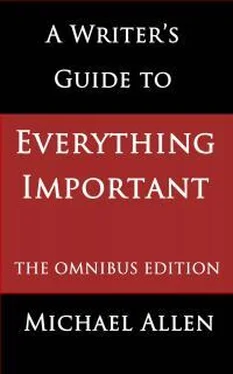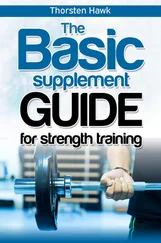Well, fair enough. It’s a point of view. It was mine once. And if that’s the way you want to go, buy yourself a copy of the Writers’ and Artists’ Yearbook (UK) or Writer’s Market (US) and plunge in.
But there is an alternative, and the alternative is to become a self-publisher, or indie publisher. Start with Kindle, read up all the advice that Amazon offers you (and there’s a lot of it), and go your own way.
If you’re smart enough to have written a novel, or even if you’ve just idly found this present ebook on someone’s tablet, you are certainly smart enough to figure out how to format an ebook. You’ve got the hang of email and Word, haven’t you? You know about RSS feeds, Paypal, stuff like that? OK, so you can format an ebook, if you apply your mind to it.
You can design your own cover too. Amazon offers you a fairly simply way to do it. Or you can make your own. Just download some free photo-editing software (GIMP will do nicely), or pay for Photoshop Elements, which is what I use. Yes, it does take time to learn how to use such a program, and you need to practise, but the more you do the easier it becomes. Nothing new about that. Same with the main part of the enterprise, which is writing a novel.
Then… when you’ve done all that, when your indie book is out before the admiring public, you sit back and wait.
If nothing much happens, you write some more and do it again. In fact you should write some more anyway, while you’re waiting. But if, by the grace of whatever gods may be, you find a million or two readers, and attract a little bit of attention, then maybe an agent, or even a publisher, will approach you. And that’s much the best way round.
3.9 Contracts are nasty… (insert rude noun of choice)
It is a fact that, for well over a hundred years, book publishers have been blessed by the existence of a huge number of mugs, suckers, and assorted fuzzy thinkers, who have been willing to work for a year or two, to produce a full-length manuscript on spec, without a penny piece to show for it. These would-be authors then dispatch their manuscript to a publisher, or an agent, who in a noticeable number of cases proceeds to lose it; but even when the recipient keeps track of it, it is only to send the thing back, after a modest delay of six months or so, with a scrappy piece of paper saying ‘Sorry – not quite what we are looking for.’
So shabby and disgraceful is the industry’s treatment of its authors that it is a small miracle, if truth be told, that publishers (and agents) are not daily visited by a small gang of infuriated slush-pile rejects, brandishing iron bars and sawn-off shotguns, demanding to see ‘that son of a bitch who wrote this letter.’
However, let us assume, for a paragraph or two, that at some stage you are actually offered a contract with a ‘reputable’ publisher.
Contracts require a whole book of their own, and there are a few such books available if you poke around in the bibliographies and search engines. I could have written one myself once – in fact, with my publisher’s hat on, I wrote a few actual contracts in times past – but I’m not going to go into great detail on contracts here because I feel I am out of date.
I will, however, offer a few broad-brush remarks.
In the US there is a lawyer who specialises in contracts for the entertainment media, and whose wife is an indie publisher. The lawyer’s name is David Vandagriff, and he writes a blog called The Passive Voice. Here’s what he has to say about book contracts: ‘After having reviewed many, many agreements and proposed agreements between traditional publishers and authors, [I am] prepared to say these contracts, as a group, stand apart from the general run of business agreements as conscience-shocking monstrosities. They’re simply designed to screw authors and to give publishers control over their work that is far beyond what is regarded as reasonable in the rest of American business.’ (The UK is no different, by the way.)
You should also read what experienced authors such as Dean Wesley Smith and his wife Kristine Kathryn Rusch have to say on this issue. Both of them run blogs (see Appendix at the end of this book).
You should certainly keep an eye on a web site called Writer Beware. This is run by the Science Fiction and Fantasy Writers of America, and we all owe them a great debt. They have much to say on contracts with traditional publishers, and little of it is complimentary.
Here are a few small pointers to the kind of problems you might encounter. Just examples.
At some time, perhaps even twenty years after signing a contract, you might want to bring the contract to an end, and reclaim rights which you once granted. But, in the present state of things, you won’t be able to do that unless the publisher is sick to death of you, in which case you will have been dumped years ago.
Modern publishers, as I have repeatedly said, are pretty damn clueless at running a business efficiently. But one point I will grant them: they are remarkably good at writing contracts which lock you to their bosom for ever – if they actually want to keep you.
The reversion clause, as it’s called, will be well-nigh unbreakable. You won’t be able to get your rights back.
Then there’s a clause which prevents you from offering anything to another publisher which might compete with the book you’ve sold to them (sold it for ever, as you now know). So, if you’re a big success as a romance writer, you may not be able to write any more romances for another publisher because the contract forbids it. It’s usually called a non-competition clause, or something similar.
And then, at some point, you might receive notice of an addendum to the contract, sent to you through the post, or by email. You will be asked to sign it.
One thing can be guaranteed: this addendum won’t make the contract any more favourable to you. Beware of addenda.
And then, of course, because big publishing is finding it increasingly difficult to make profits in the old way, or even in the new way, they have begun to dabble in cunning plans. If it’s hard to get customers to buy their books, why not scrounge money out of the writers? After all, if they’re dumb enough to spend years writing a book and are desperate to get into print under the name of a famous and once reputable company, offer them the chance to do so! For a fee, of course.
In 2012, Penguin bought a firm called Author Solutions. This firm was well known for providing self-publishing services to writers – services for which they charged large sums of money. Want a ‘web-optimised press release’ for your book? Certainly, sir or madam: that will be $1,199 please.
Prior to the Penguin purchase, the 150,000 customers of Author Solutions were charged an average of $5,000 and on average sold 150 books.
In the same year, Simon & Schuster set up a subsidiary called Archway Publishing, which they planned to run in conjunction with… yes, you guessed it, our old familiar friends Author Solutions. With prices starting at $1600, Archway would do for authors that which they could perfectly well do for themselves for nothing, namely publish an ebook edition.
Book-trade commentators were unimpressed. One such, Nate Hoffelder, wrote as follows:
‘Author Solutions might be currently owned by Penguin, a detail which does not speak well for Penguin’s business ethics, but there is no sign that they have cleaned up their act. All we are seeing today is that Author Solutions is merely offering the same scammy deals as they always have, only this time they get to do so under the formerly good name of Simon & Schuster.’
Frankly, I grow weary of listing even a sample of the pitfalls of mixing with traditional publishers. So let me end by telling you that I once wrote a book called The Truth about Writing . The first paragraph of that book ran as follows:
Читать дальше












